The best smartphones of 2018: iPhone XS, Huawei Mate 20 Pro and more
From luxury phones to cheap powerhouses, these are the best handset on sale this year
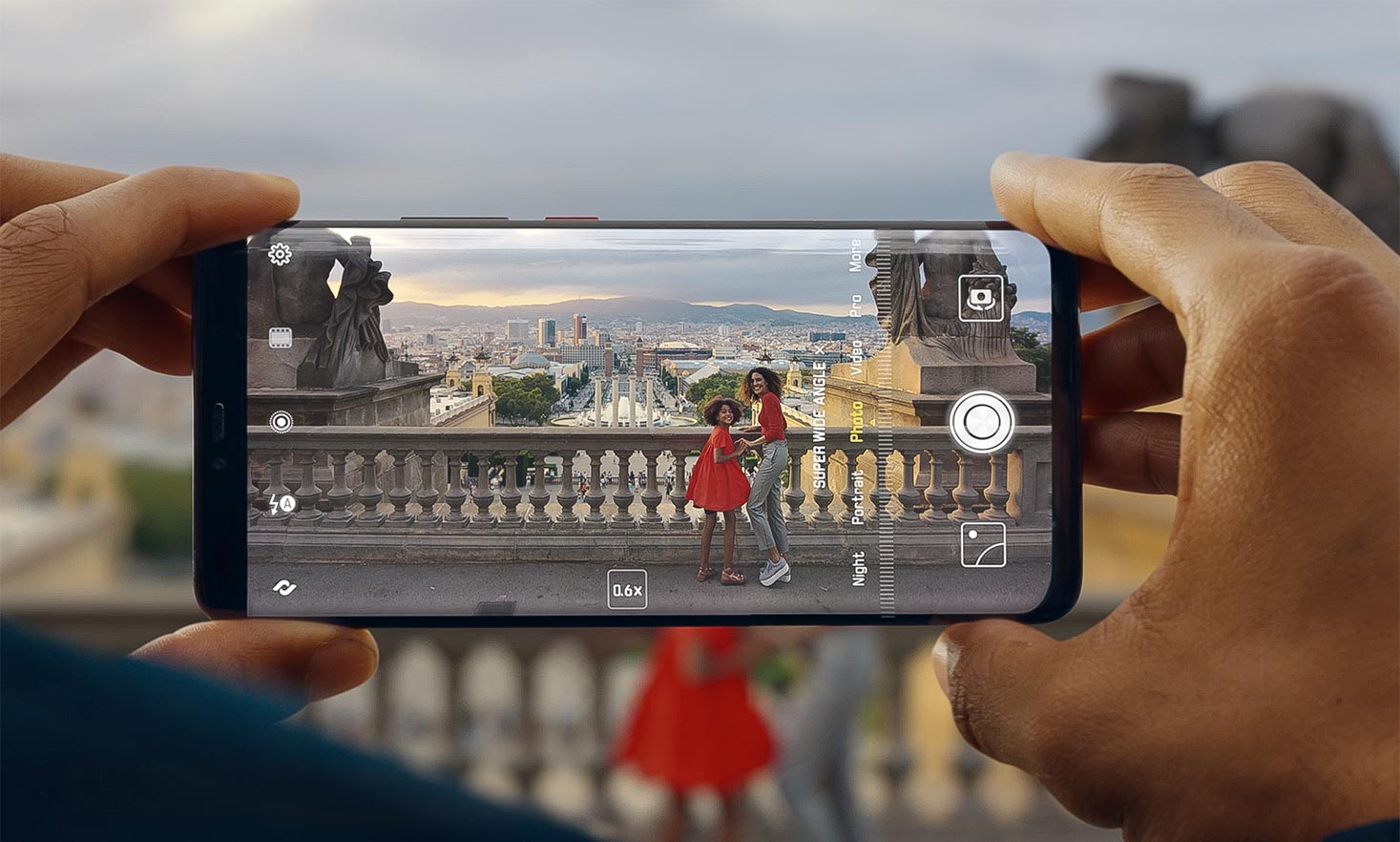
A free daily email with the biggest news stories of the day – and the best features from TheWeek.com
You are now subscribed
Your newsletter sign-up was successful
After suffering a slump in global sales towards the end of last year, the smartphone market is once again as booming as it has ever been.
This year’s first quarter, which runs from January to March, proved to be strong period for the smartphone, according to a report by industry analyst Gartner. Sales increased by 1.3% over the same quarter last year, with Samsung and Apple combined selling over 132,600,000 phones.
But it’s not all down to the industry leaders, the report says. Other smartphone manufacturers, such as OnePlus and Google, were also popular choices for smartphone buyers at the beginning of the year.
The Week
Escape your echo chamber. Get the facts behind the news, plus analysis from multiple perspectives.

Sign up for The Week's Free Newsletters
From our morning news briefing to a weekly Good News Newsletter, get the best of The Week delivered directly to your inbox.
From our morning news briefing to a weekly Good News Newsletter, get the best of The Week delivered directly to your inbox.
Here are the best smartphones you can buy right now:
Huawei Mate 20 Pro
Earlier this year the Chinese smartphone maker Huawei wowed critics with its iPhone X-rivalling P20 Pro. Now the company has introduced a larger version designed to rival the iPhone XS Max and Samsung Galaxy Note 9.
Dubbed the “most tech-packed” phone of the year by Wired, the Mate 20 Pro [pictured top] boasts an edge-to-edge 6.39in AMOLED display and a triple-lens rear-facing camera. A fingerprint scanner is built into the phone’s front panel and the device has face-scanning tech similar to that of its key rivals.
A free daily email with the biggest news stories of the day – and the best features from TheWeek.com
The 4,200mAh battery is “epic” and delivers “days of power” for both casual users and people looking to spend hours on games such as Fortnite, says Gizmodo. Wireless charging is included and can be used to power other devices that use the technology.
Ultimately the Mate 20 Pro is so impressive that it will have other companies thinking that “if they don’t keep stepping things up, they’re going to get left behind”, Engadget concludes.
Prices start at £899 for the Mate 20 Pro which is available to order from Carphone Warehouse.
Google Pixel 3
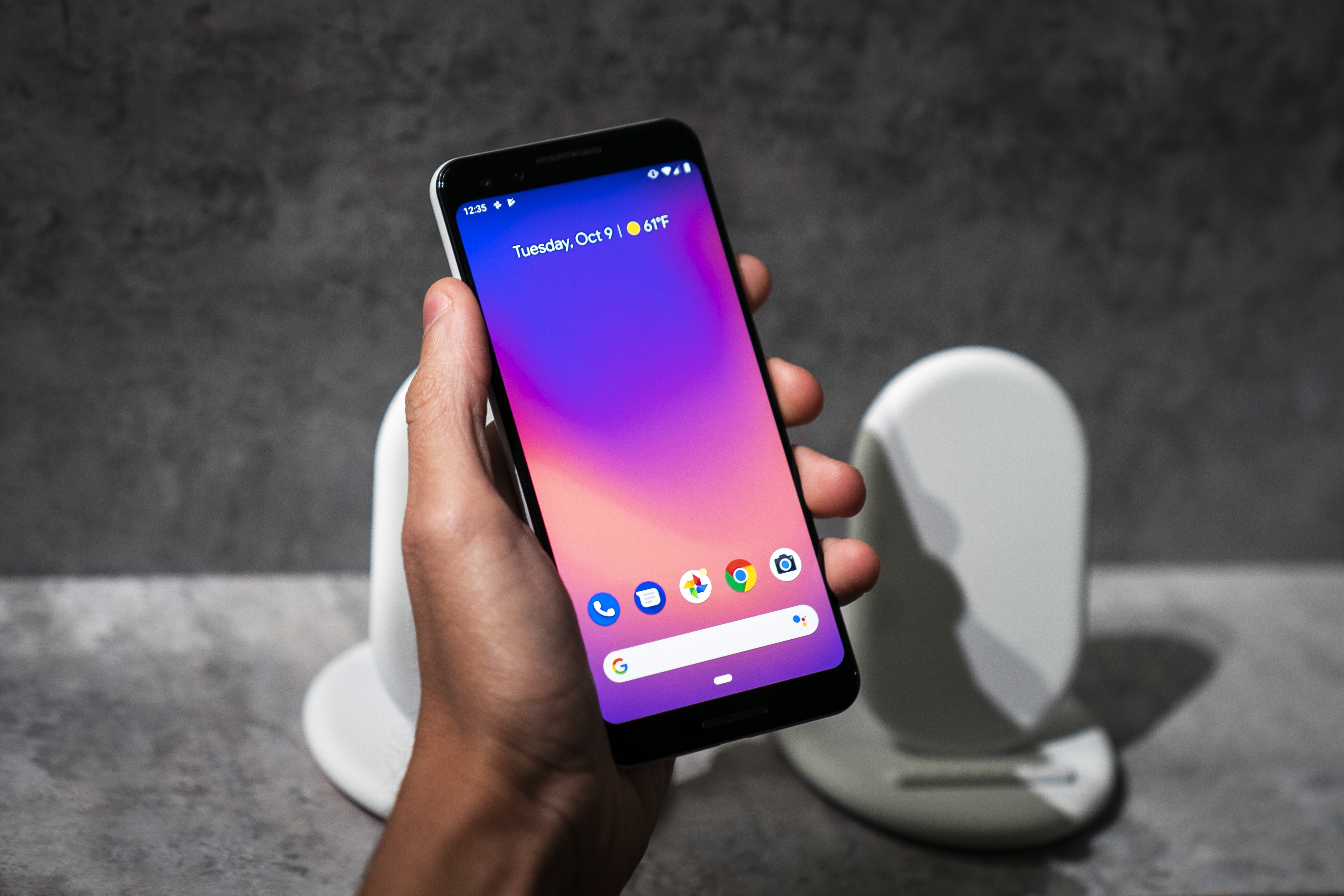
Apple’s iPhone XS and the Samsung Galaxy S9 pose some stiff competition to the Pixel 3, but with a new edge-to-edge screen and AI-powered camera trickery, Google’s newly launched handset is up to the challenge.
The search giant has ditched the ageing display on last year’s Pixel 2 in favour of a bezel-free 5.5in OLED panel with a resolution of 2220x1080 pixels. The screen packs a punch, too, with “vibrant” colour and “deep black levels”, says Digital Trends.
Unlike most of its rivals, the Pixel 3 bucks the trend of complex dual-camera systems and instead has the same single-lens set-up as its predecessor.
This may seem like a backwards step, but Google has focused its efforts on improving image quality through clever AI features, including an option that allows the user to adjust the depth of field after snapping a picture.
“The Google Pixel 3 is offering a lot, and in a tighter package than most other flagship phones,” TechRadar concludes.
And at £739, the new handset also costs significantly less than its iPhone XS and Galaxy S9 rivals.
iPhone XR
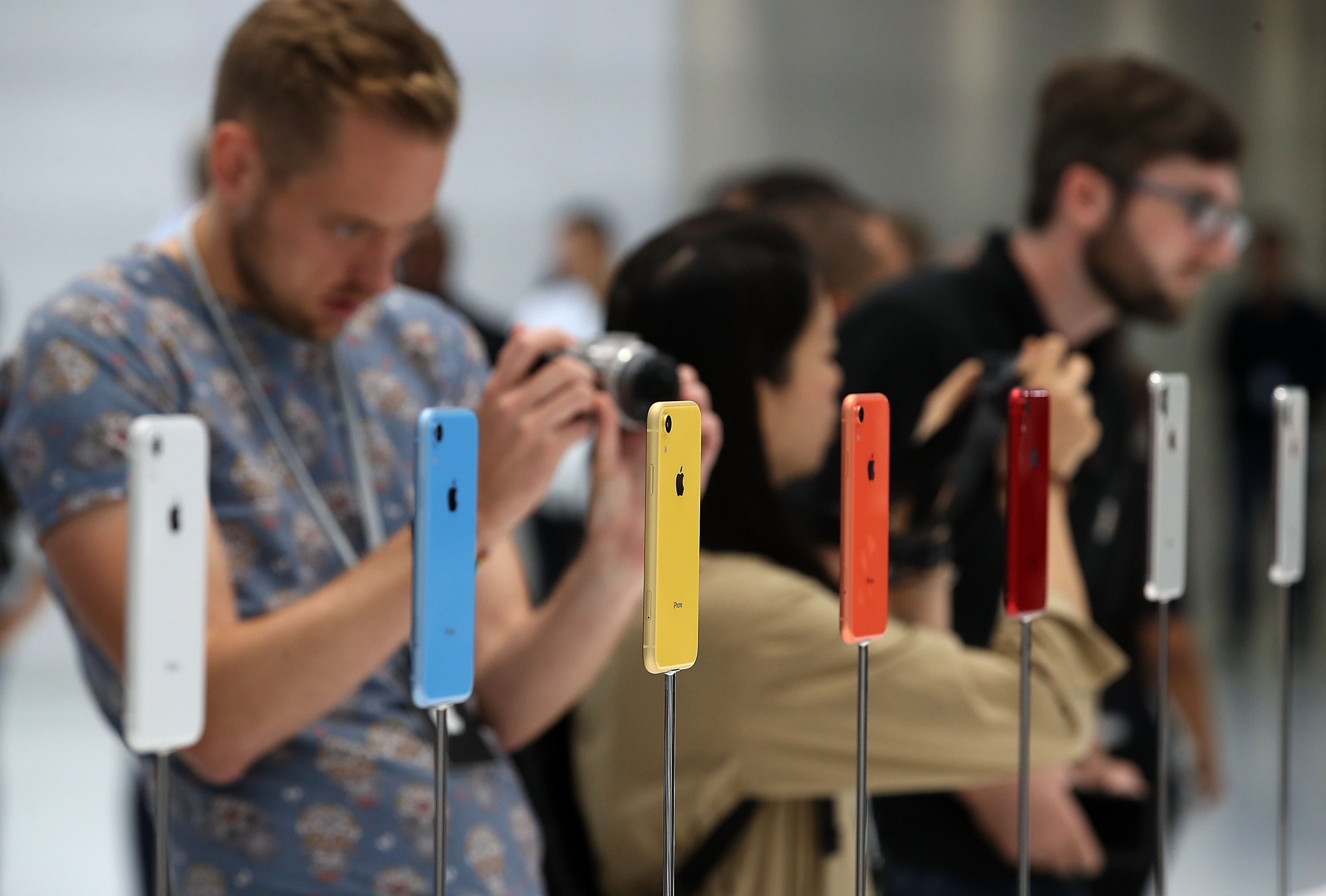
The iPhone XR is the cheapest model in Apple’s 2018 smartphone line-up, but many critics reckon it’s the best of the bunch in terms of value.
The XR doesn’t quite match the tech specs of its flagship siblings. The budget handset’s edge-to-edge 6.1in LCD display lacks the punch of OLED panels on the XS and XS Max, measuring in at 5.8in and 6.5in respectively.
But at £749, the entry-level XR is £250 cheaper than the XS, and £300 less than the XS Max.
The XR’s design is “very similar” to the XS and XS Max, which probably make it “the default iPhone for many people this season”, says The Verge.
It’s not just the styling that’s similar either, the tech site adds. Under the XR’s skin sits the same A12 processor found in its siblings, and the battery lasts an hour and a half longer than that in its predecessors, the iPhone 8 and 8 Plus.
The rear-facing 12 megapixel camera is also identical to that on the iPhone XS, although the cheaper phone comes with a single-lens system rather than the dual-lens set-up on the range-toppers, says Digital Trends.
You can learn more about the similarities and differences between the new iPhones here.
iPhone XS and XS Max
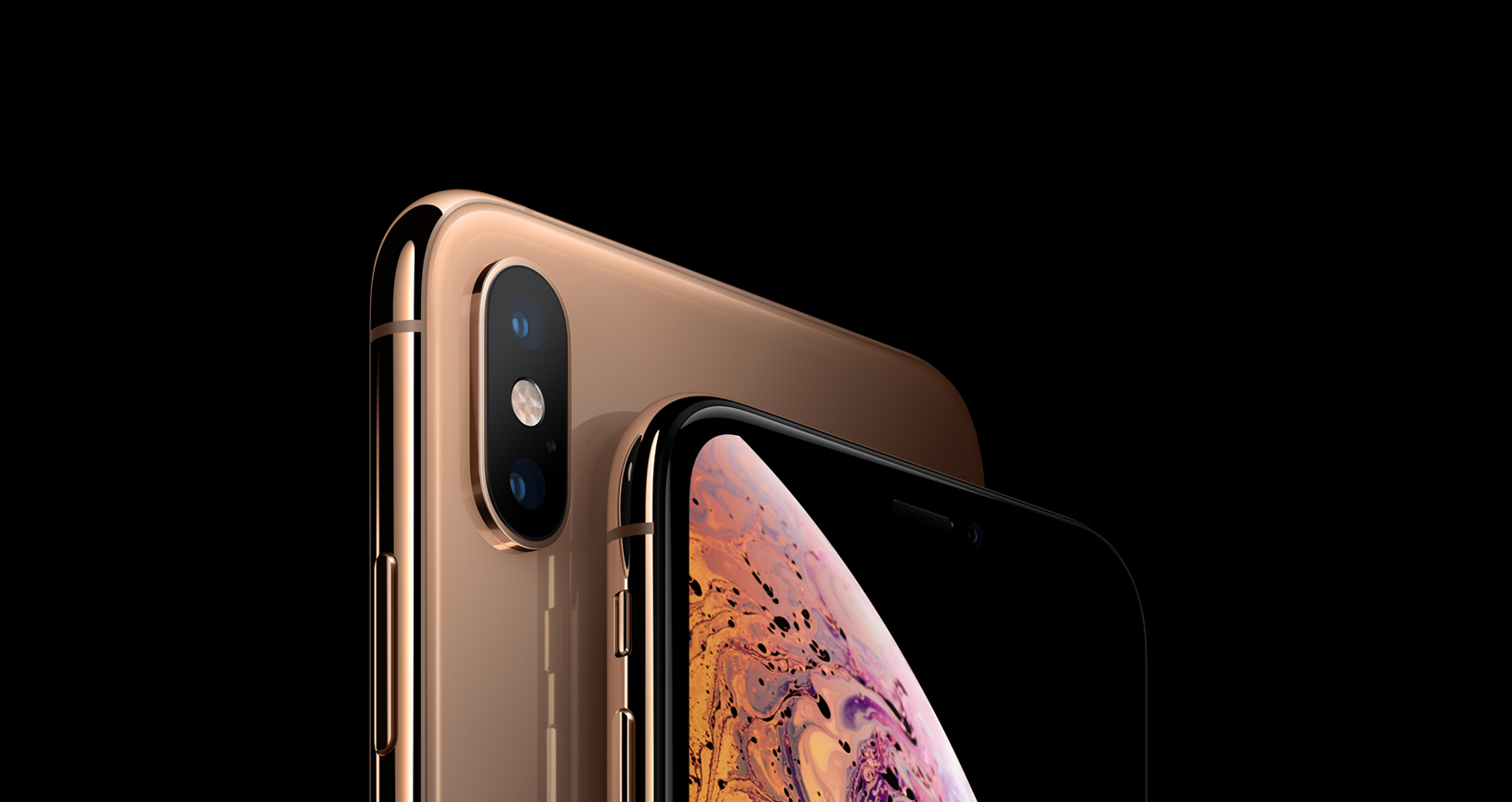
Critics may argue that Apple’s £749 iPhone XR is better value for money but the £999 iPhone XS and £1,149 iPhone XS Max are the best range-topping handsets to date.
Differences between the iPhone XS line-up and the old iPhone X are hard to spot at first glance as both models have near-identical designs. Buyers can now choose a new gold colour when speccing their iPhone XS, or opt for a larger 6.2in screen size with the XS Max, options that weren’t available on last year’s iPhone X.
But Mashable argues that the “real game-changing innovations are all happening inside.”
The improved dual-lens cameras, for example, let users adjust the depth of field after an image has been taken, says the tech site. This allows users to blur the picture’s background while the subject is in focus. It’s a system that has appeared on other devices before but it’s best experienced on the new iPhones.
Another improvement comes in the form of the new A12 Bionic processor. The chip is “faster than last year’s flagship iPhone and this year’s fastest Android phones” when it comes to both menial tasks and heavy gaming sessions, says Expert Reviews.
Both the XS and XS Max are also IP68 certified. This means they can be dropped in water at a depth of two metres for up to 30 minutes, says Trusted Reviews.
Samsung Galaxy Note 9
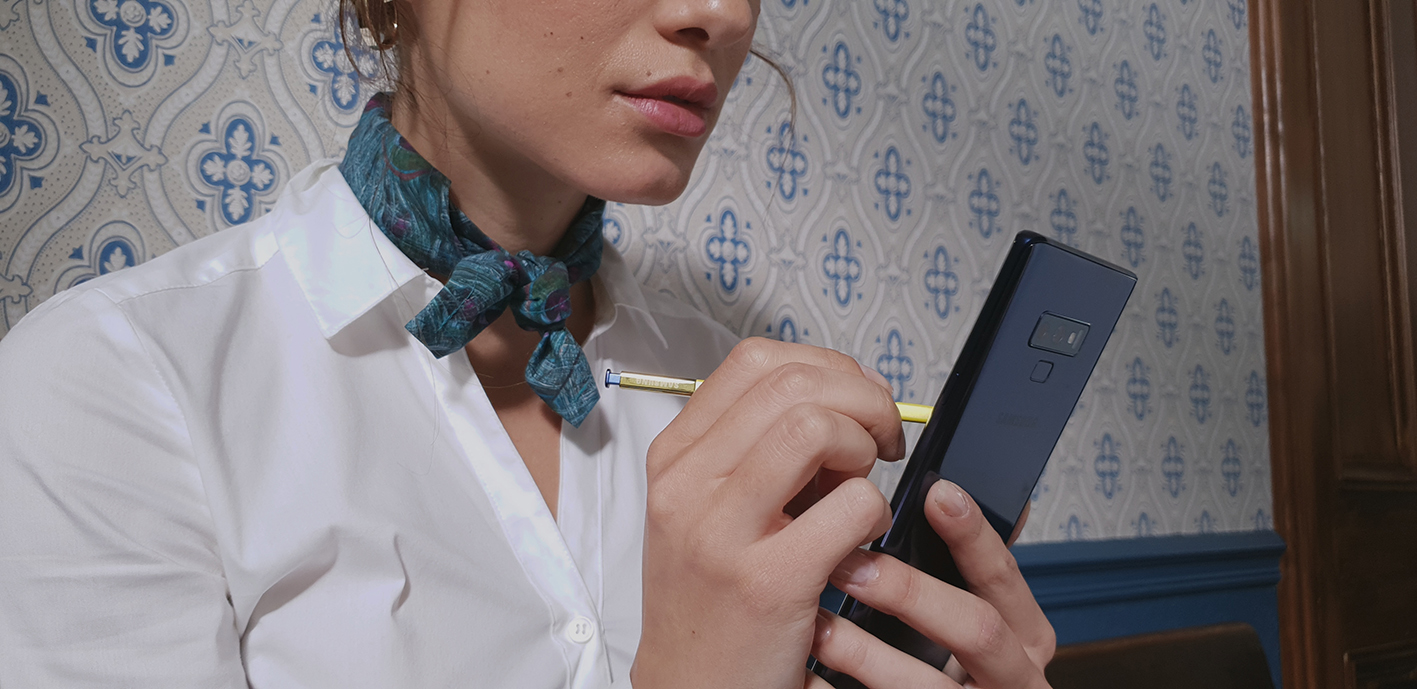
A new version of Samsung’s largest smartphone is almost up on us, as the Galaxy Note 9 launches on 24 August.
Often referred to as a “phablet”, as it straddles the line between a phone and a tablet computer, the Note 9 replaces last year’s Note 8 as the most powerful mobile offered by the South Korean tech giant.
On paper, the Note 9 offers an all-day battery and 1TB worth of storage when buyers opt for the top-spec model.
The phone’s voice-activated artificial intelligence (AI) system, Bixby, has also been revamped, meaning it can now understand follow-up queries after the user asks it a question.
The smartphone seems to be a hit with the critics, too. CNet reckons the Note 9 is “one of the year’s best phones” thanks to its “massive battery” and unrivalled storage options. The added functionality of the S Pen stylus is a bonus, as it can now be used as a hands-free remote.
Bixby is also proving to be one of the best AI systems on the market, says TechRadar. It doesn’t quite match Google Assistant, which is considered the best there is, but Bixby is “developing quickly” and could soon rival the search giant’s system.
The Note 9 can be pre-ordered from Carphone Warehouse, with prices starting at £899.
Huawei P20 Pro
Huawei is no longer the budget alternative to Samsung and Apple’s offerings in the smartphone world. The Chinese gadget maker has now proven that it’s more than capable of challenging the market’s big guns in recent years – and it’s new P20 Pro goes “toe-to-toe with the very best”, says TechRadar.
What sets the P20 apart from the competition is its new artificial intelligence (AI) powered camera, the tech site says. In low-light conditions, the camera will take a “barrage of images” over the course of three to six seconds, before merging them together to create the best quality photo possible.
The edge-to-edge display is “gorgeous”, says Expert Reviews. The screen has “excellent colour reproduction across the entire palette” and the OLED panel delivers “unbeatable contrast levels.”
To conclude, the reviews site claims the P20 is “2018’s most interesting smartphone” and shows the tech firm is “really stepping things up a gear” to offer an enticing alternative to the iPhone X and Samsung Galaxy S9.
The Huawei P20 Pro can be ordered on Amazon for £748.
OnePlus 6T
The OnePlus 6 has proven a big hit since its launch in May but the smartphone's makers have been labouring away to make it even better. The result is the new OnePlus 6T.
The most obvious upgrade on the new handset is its smaller “notch” - the area at the top of the screen that houses the camera and various scanners. The 6.41in AMOLED display also gets a fingerprint scanner, which Wired praises as “the best of its kind”.
The Chinese smartphone company has removed the 3.5mm headphone port from the OnePlus 6T, a move that may divide fans but that allows for the addition of the largest battery in a OnePlus device to date. The Verge says the upgrade pushes the phone’s battery life from “good to almost great”, putting the 6T on a par with the more expensive Google Pixel 3.
Overall, the new handset “feels like a genuine step up from the OnePlus 6” and is “consistently better in almost every respect” over its predecessor, TechRadar concludes.
Samsung Galaxy S9
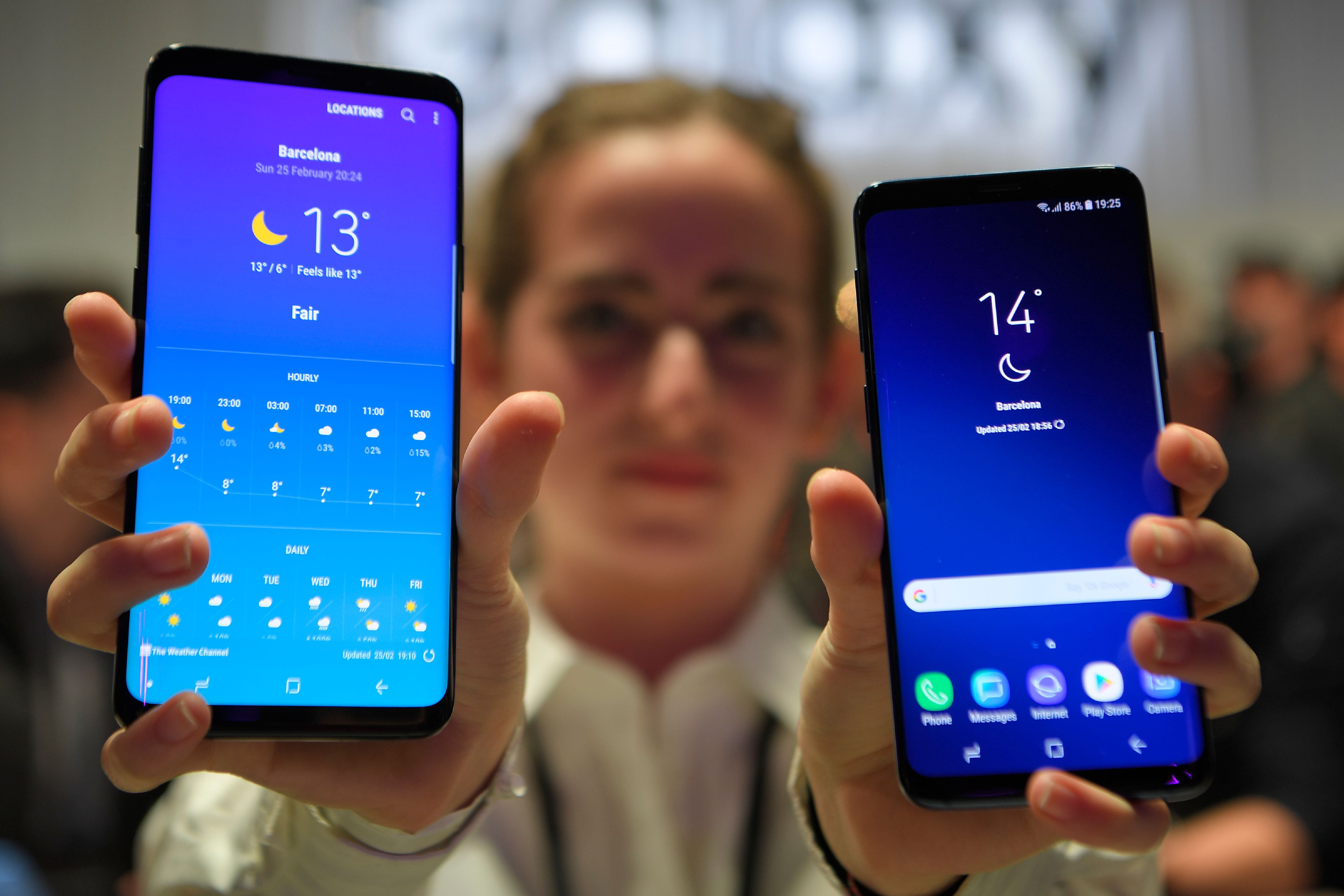
The Galaxy S9 looks “suspiciously similar” to last year’s model, but Samsung introduced a raft of changes on its 2018 flagship model, The Daily Telegraph says.
The fingerprint scanner on the back panel is now below the camera rather than next to it, says the paper. Samsung is thought to have moved the scanner after critics and fans complained about its location on the Galaxy S8, so the S9 should be “slightly easier to unlock”.
The screen on the S9 is “slightly brighter” than last year’s model, according to The Verge. There’s also an updated version of Samsung’s own Exynos 9810 processor, while a new dual-aperture lens lets in more light – and therefore more detail – than the old phone.
The Galaxy S9 can be ordered on Amazon for £695.
-
 Why are election experts taking Trump’s midterm threats seriously?
Why are election experts taking Trump’s midterm threats seriously?IN THE SPOTLIGHT As the president muses about polling place deployments and a centralized electoral system aimed at one-party control, lawmakers are taking this administration at its word
-
 ‘Restaurateurs have become millionaires’
‘Restaurateurs have become millionaires’Instant Opinion Opinion, comment and editorials of the day
-
 Earth is rapidly approaching a ‘hothouse’ trajectory of warming
Earth is rapidly approaching a ‘hothouse’ trajectory of warmingThe explainer It may become impossible to fix
-
 Will AI kill the smartphone?
Will AI kill the smartphone?In The Spotlight OpenAI and Meta want to unseat the ‘Lennon and McCartney’ of the gadget era
-
 Is Apple’s Tim Cook about to retire?
Is Apple’s Tim Cook about to retire?Today's Big Question A departure could come early next year
-
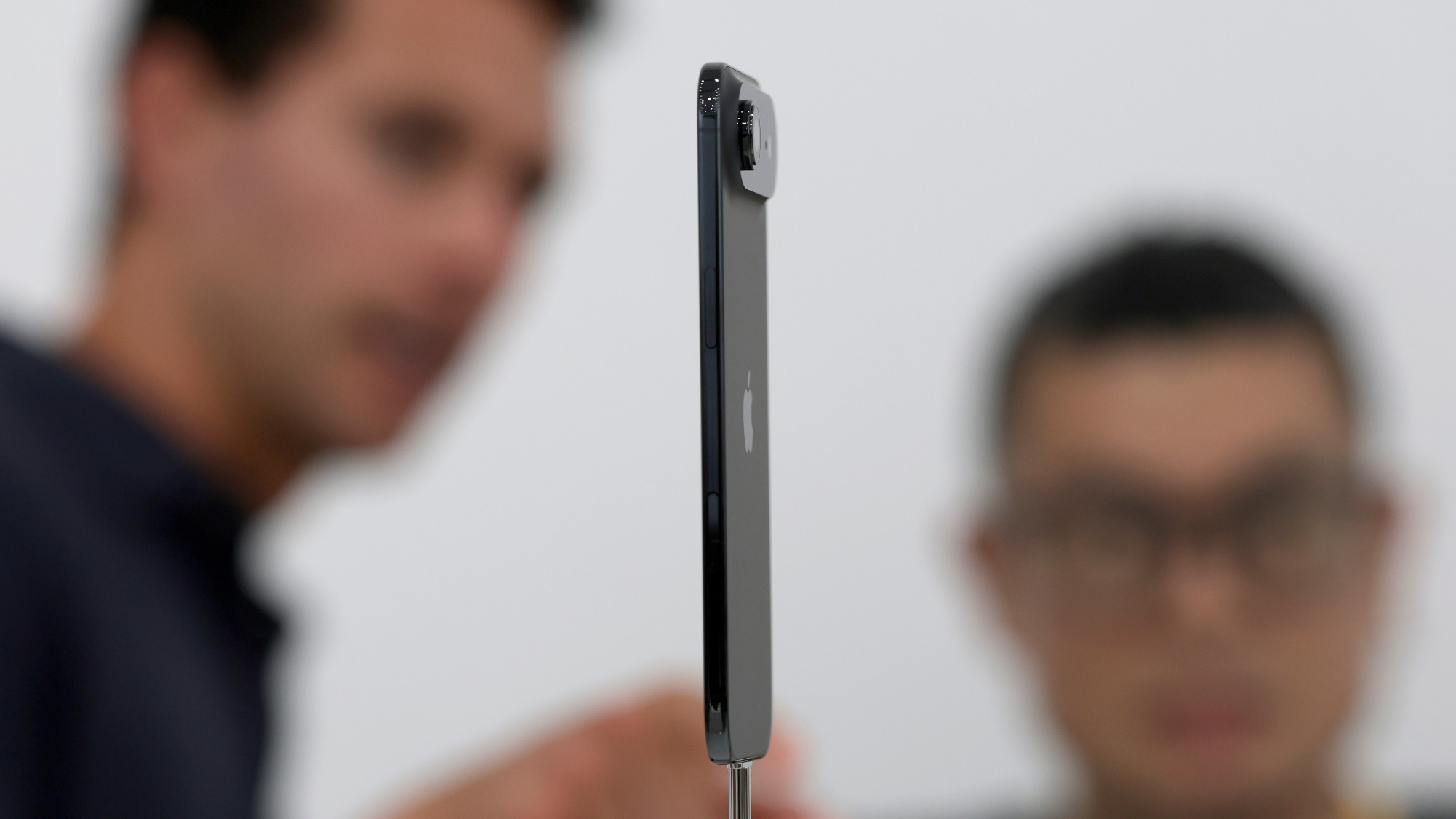 iPhone Air: Thinness comes at a high price
iPhone Air: Thinness comes at a high priceFeature Apple’s new iPhone is its thinnest yet but is it worth the higher price and weaker battery life?
-
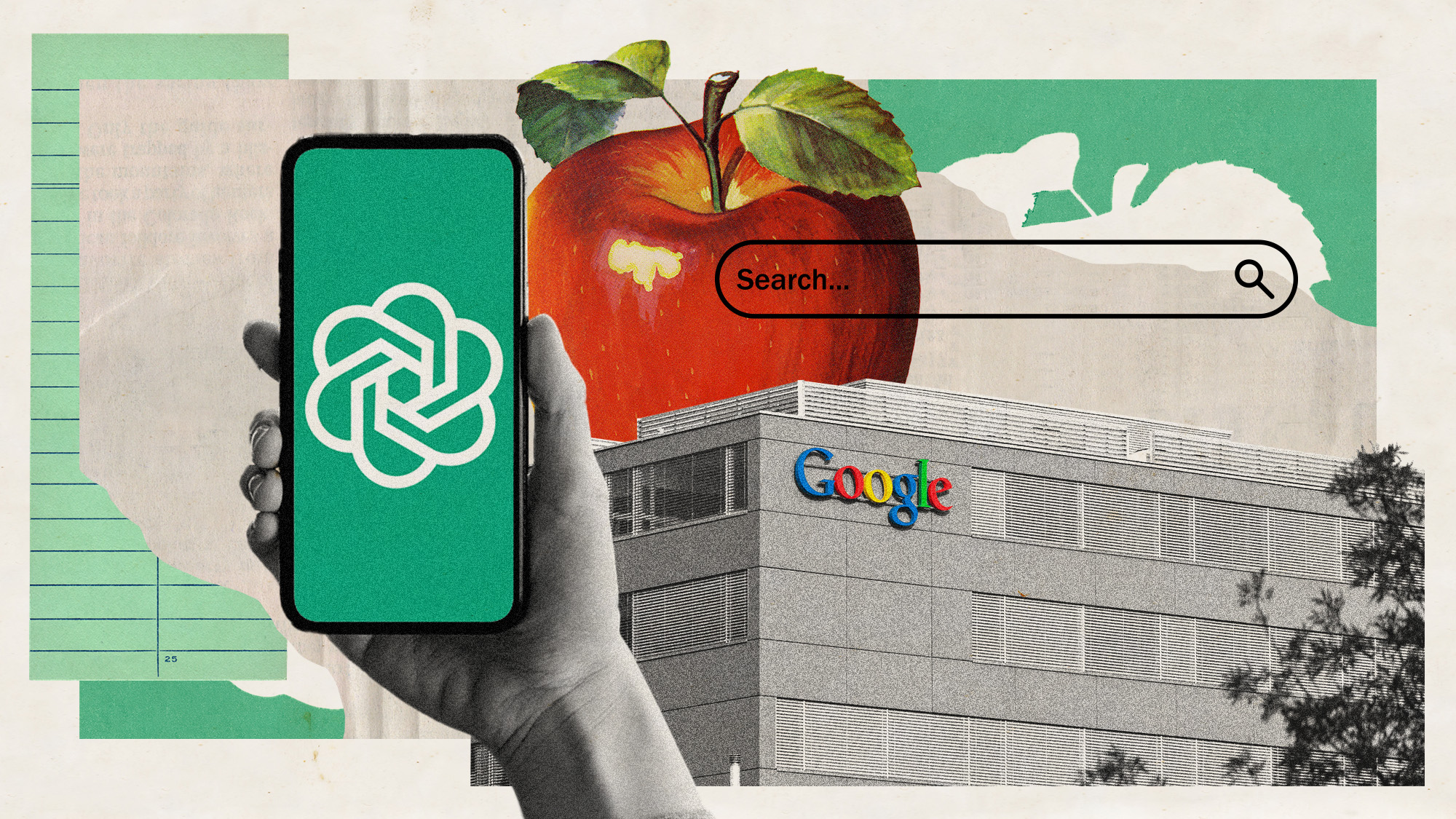 Is Apple breaking up with Google?
Is Apple breaking up with Google?Today's Big Question Google is the default search engine in the Safari browser. The emergence of artificial intelligence could change that.
-
 Why won't Apple make iPhones in America?
Why won't Apple make iPhones in America?Today's Big Question Trump offers a reprieve on tariffs, for now
-
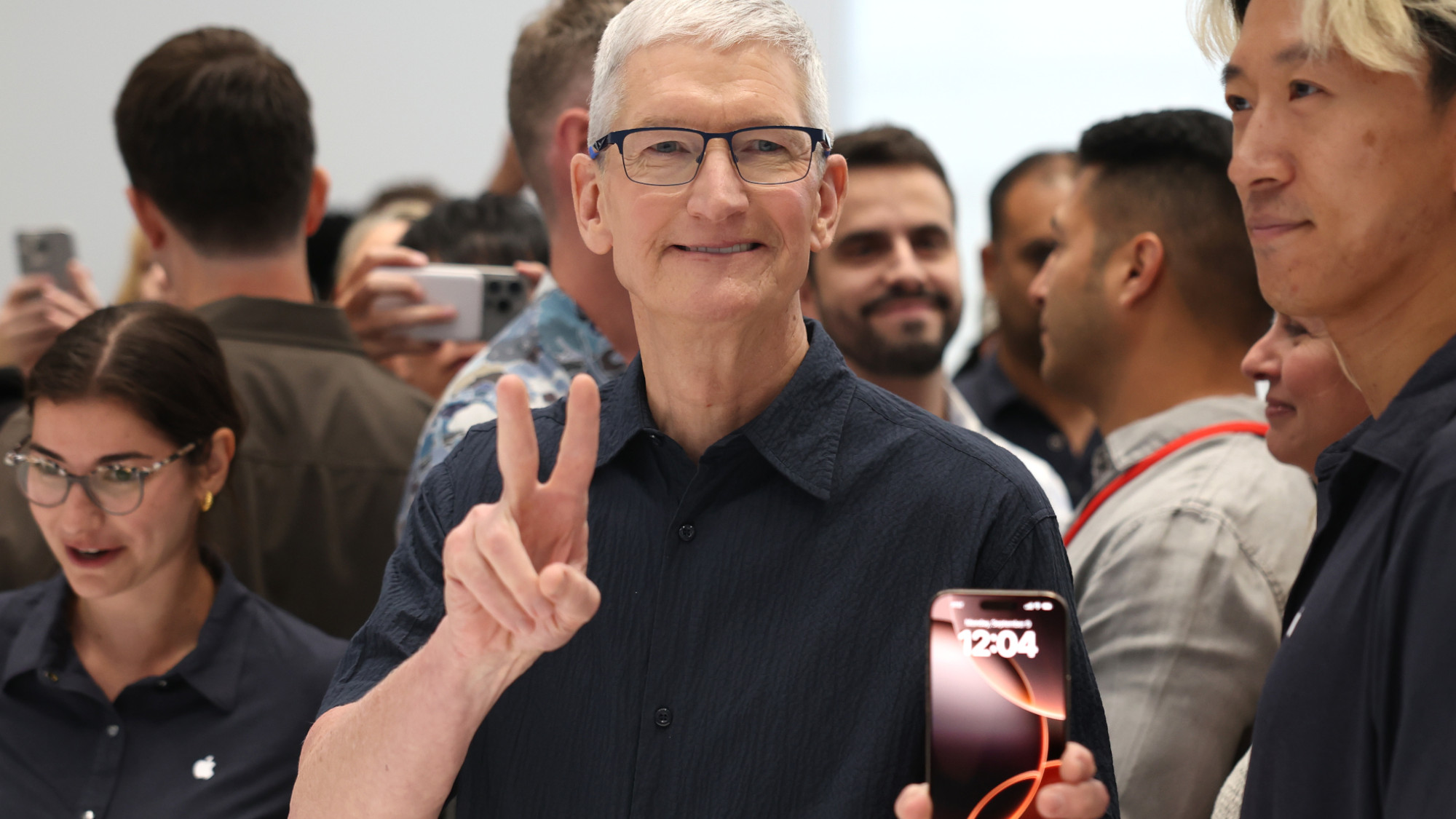 Not there yet: The frustrations of the pocket AI
Not there yet: The frustrations of the pocket AIFeature Apple rushes to roll out its ‘Apple Intelligence’ features but fails to deliver on promises
-
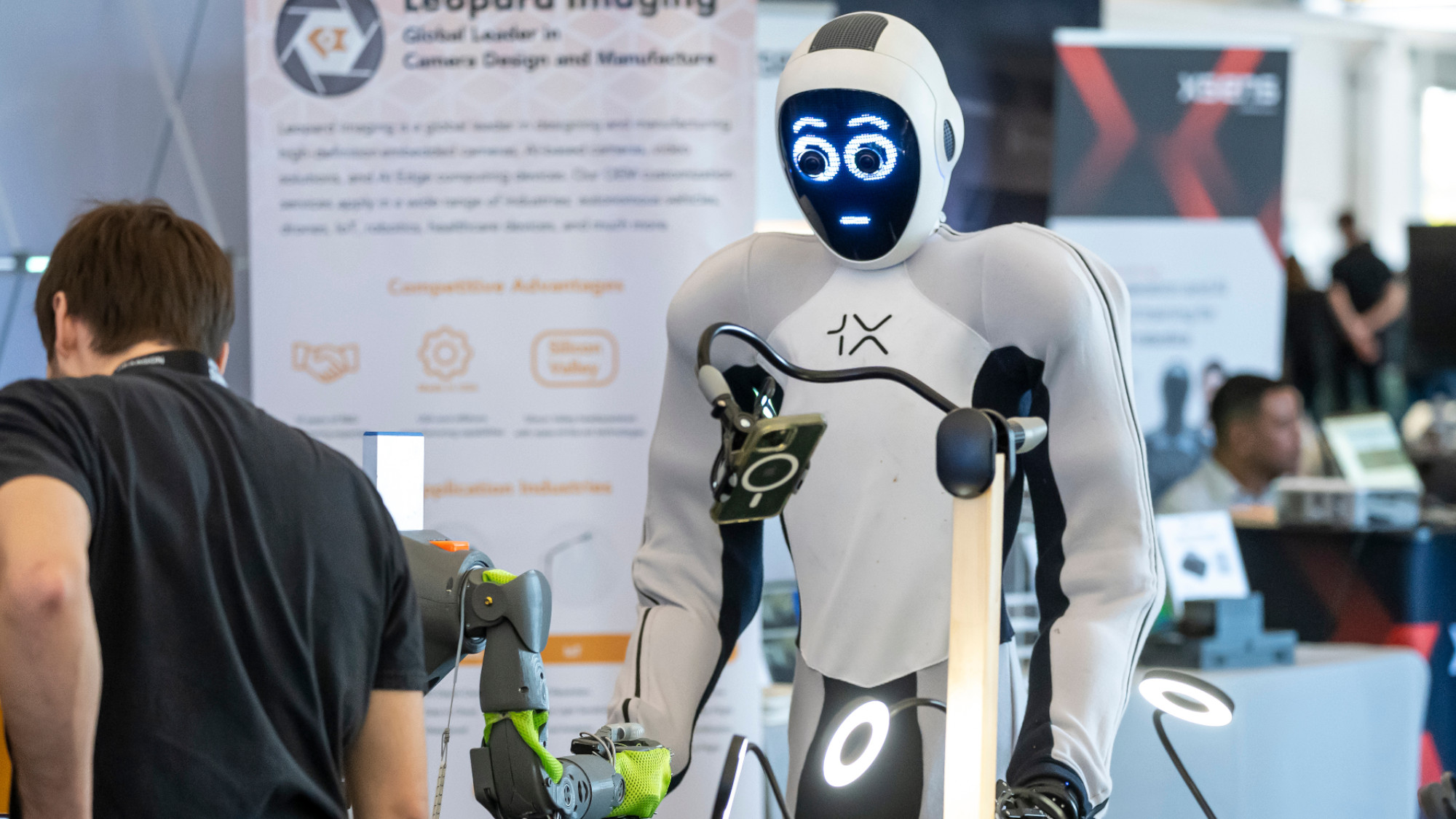 Space-age living: The race for robot servants
Space-age living: The race for robot servantsFeature Meta and Apple compete to bring humanoid robots to market
-
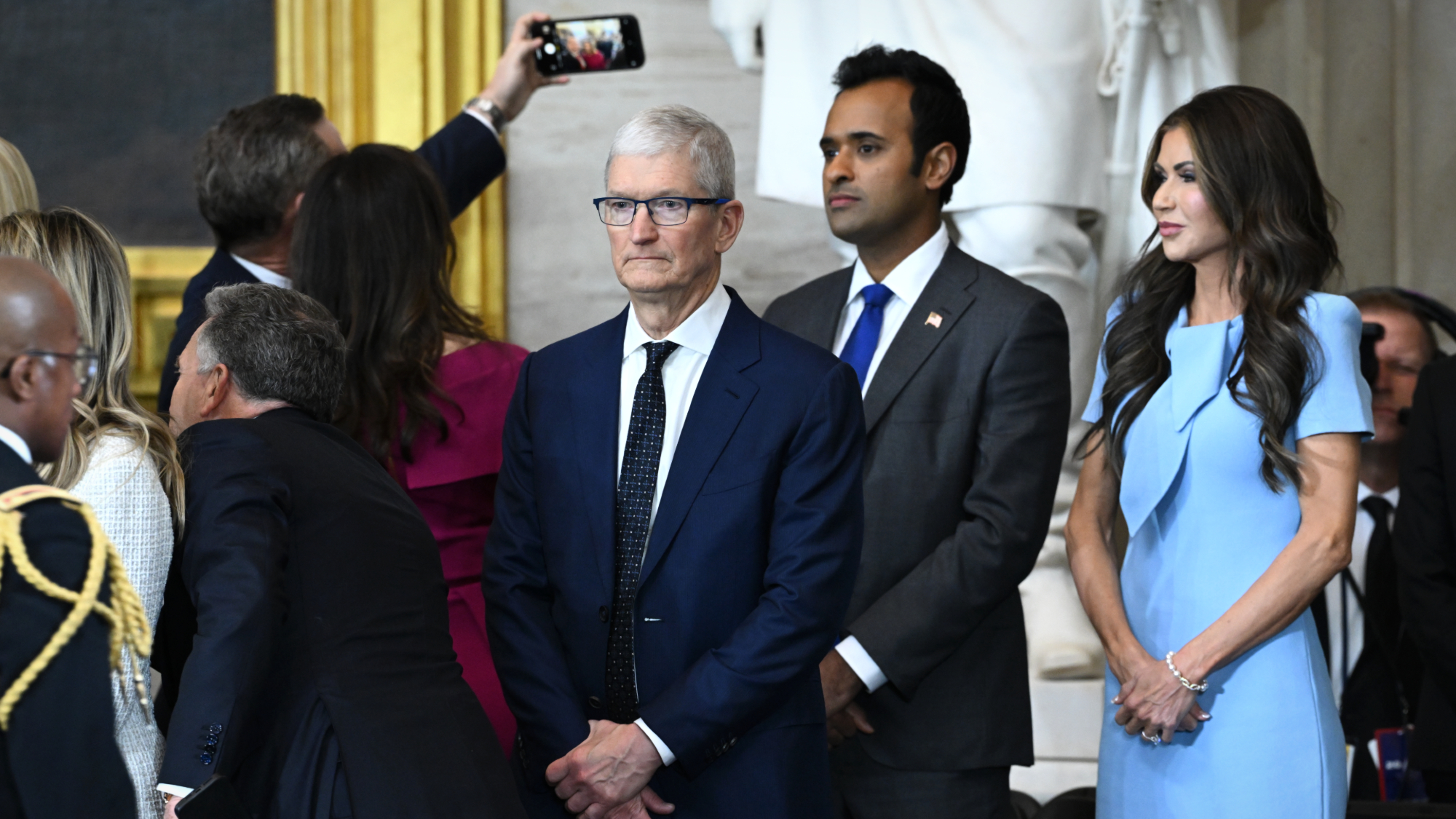 Apple pledges $500B in US spending over 4 years
Apple pledges $500B in US spending over 4 yearsSpeed Read This is a win for Trump, who has pushed to move manufacturing back to the US